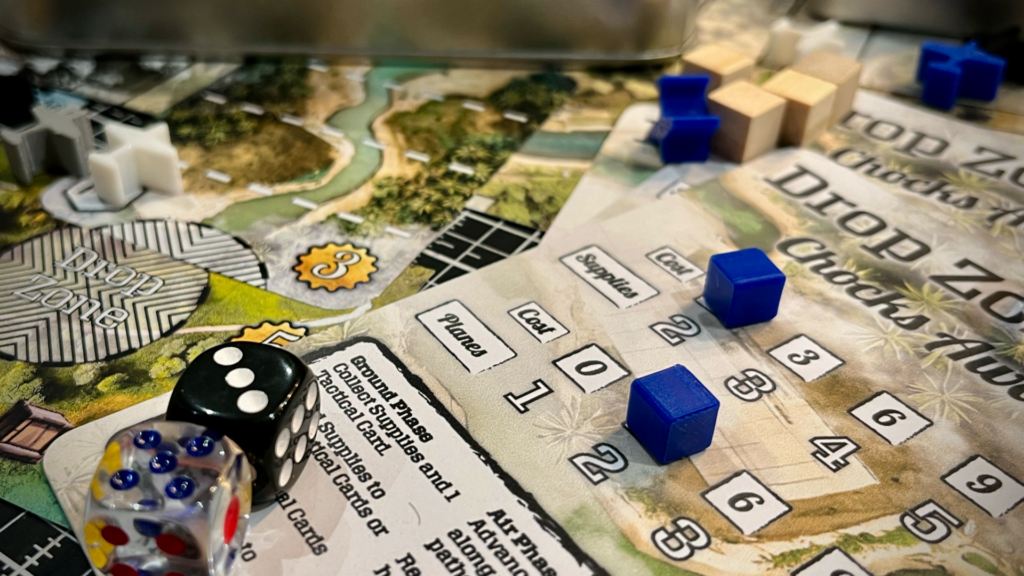Welcome back to the What If? Blog! This time I’m chatting with Steve, a designer who recently took the plunge and brought his first game to our local playtest group at Bay Games. I’ve been designing games for a couple of years now, so it’s easy to forget what that first playtest feels like. The nerves, the vulnerability, the weird mix of excitement and dread. Steve captures all of that brilliantly in this conversation.
We talk about what finally pushed him to seek out feedback, the anxiety leading up to that first session, and what he learned from being on both sides of the playtesting table. His journey from solo development to joining a community of designers is a reminder of how much courage it takes to share your work, and how valuable that step is. If you’ve been sitting on a prototype wondering whether to show it to anyone, this one’s for you.
Joe: Steve, welcome to the What If? Blog. Before we dive in tell us a little bit about yourself, what brings you to the world of board games design?
Steve: Hi Joe. Thanks for the invite. The first board game I designed was when I was about 12 years old. It was a roll and move game racing around an Aztec temple, dodging traps and baddies whilst picking up treasure. It was made out of 5 chess boards with the one in the middle being a prototyped stepped temple. So I’ve been dabbling in design a long time.
In the last 5 years or so, it’s sort of become my main hobby. I love the brain-burning puzzle of meshing mechanisms and theme into something that is bigger than the sum of its parts. The process of creating something from nothing gives me a great deal of satisfaction, even if, in reality, things don’t quite work out the way you envision them in your head when you actually get them to the table. But that’s part of the fun!
Joe: I love the sound of the Aztec game! What do you think happened in the last five years that’s drawn you into the hobby so much?
Steve: Sadly, I lost my dad to dementia last year and having watched his slow deterioration over the past few years and the effect on our family, I have been doing all I can to keep my brain ticking over. Designing with a myriad of mechanisms and attempting to combine them seamlessly together into a coherent prototype certainly keeps the grey matter challenged.
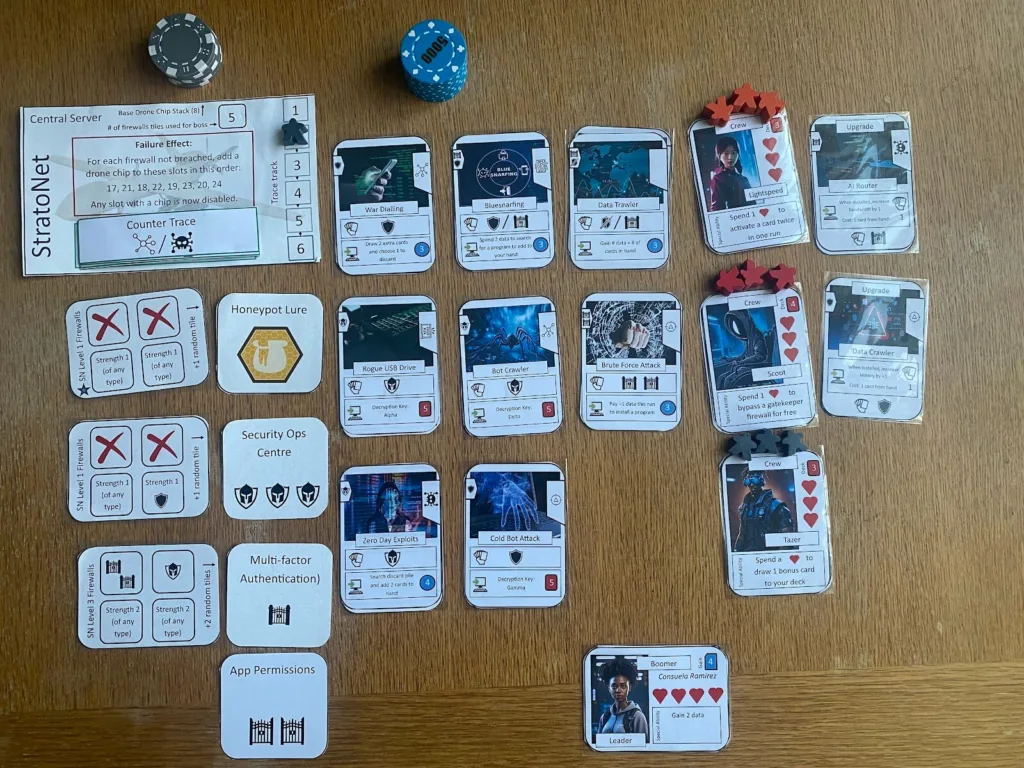
I’d admit I’m slightly obsessed, spending my commutes to work and weekends listening to podcasts and videos of the latest amazing games being released by publishers and crowdfunding platforms. However, I also see it as a way of developing my social network. Nearly everyone I have met who loves board games is so friendly and generous with their time! It is a privilege to be able to connect with others over a shared passion, from collaborating to overcome a puzzle like Forbidden Island or Pandemic to discussing the delicate balance of resource collection in prototypes.
Joe: I’m sorry to hear that Steve.
I’ll admit too that I share your obsession. For me games design has really opened up my social network. I’m now playing or playtesting several times a week. That brings us to what I’d like to explore with you in today’s blog: playtesting. Specifically your first experience of it. You came to Bay Games a few weeks back and we playtested your game. Before we get to that experience, what made you take the jump?
Steve: I’ve got a load of games in various stages of development (at least developed enough to make a working prototype). I’m certain some will never see the light of day without being completely revamped but a few I think may just work. So I spent a month working on the one that I thought might have the most chance of success. I wanted to know whether there might just be a game somewhere in there and I thought a second or third opinion from experienced gamers would help see whether I was right or not.
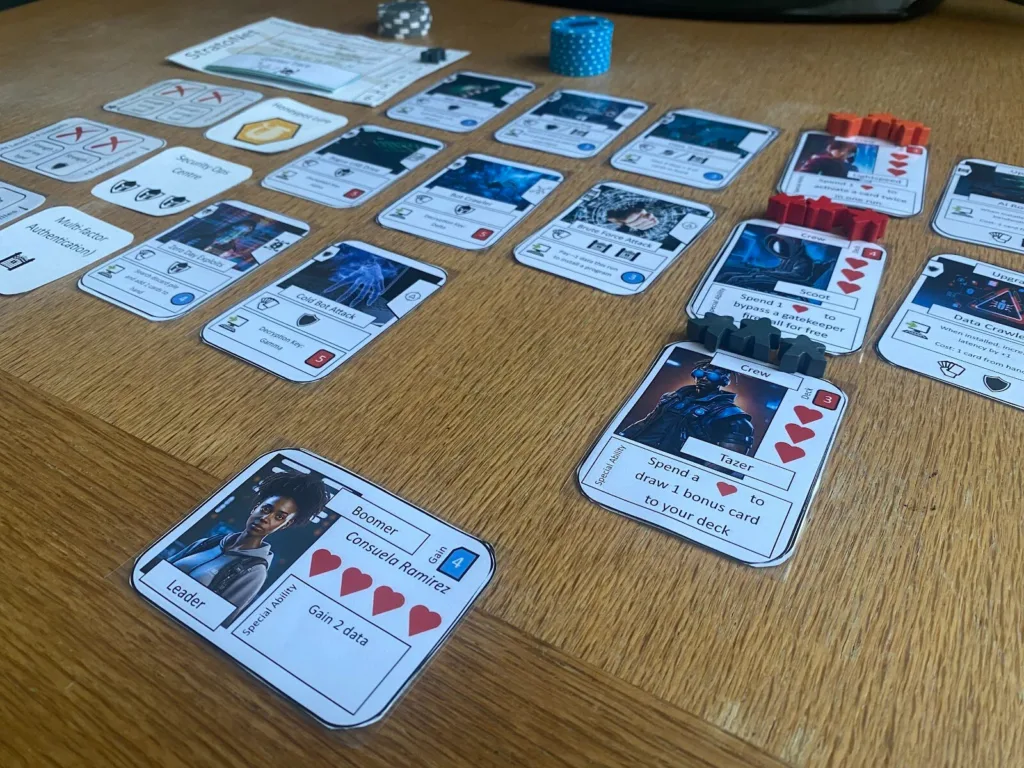
I took the plunge, popped into my FLGS, Bay Games, and asked. Not only were the owners extremely helpful but, to my surprise, they had a small games design group which I was kindly invited to join. I had never even entertained the idea that there were other people that designed games as a hobby. That was where I first met you, Joe.
“I had never even entertained the idea that there were other people that designed games as a hobby.”
Joe: And I’m glad you joined our merry band too! So this brings us to the evening of that first playtest, your first ever (I think). Tell me a little about how you were feeling during the days before the meet?
Steve: Yes, it was a first for me. I’ve had a few playthroughs of some of my other games with my long-suffering family but this was my first proper playtest with actually real-life experienced gamers who knew what they were doing!
“It honestly felt like I was going for an interview for a job!”
I’d spent a good while testing the card balance, playing it through and creating a very shonky playmat to help the process of learning the game. I must have played it about 20 times that week! It honestly felt like I was going for an interview for a job!
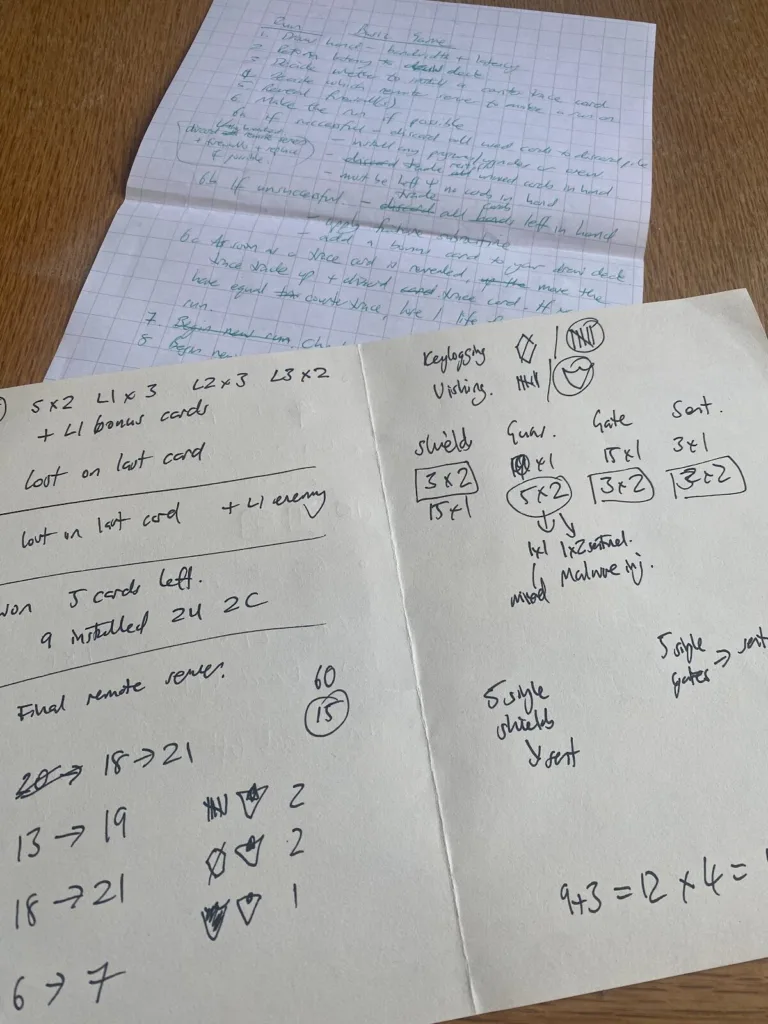
I’d made notes to ensure I didn’t forget anything in the teach. I’d run through the explanation in my head over and over. And there was something about putting a project, that I had poured my heart and soul into, out into the world, that made me feel very vulnerable. I can’t imagine what those poor folk on Dragons’ Den go through!
Joe: And then you got to the shop, Jake and I were waiting already (I’m not sure which of the dragons we were), and we played. What was that experience like? All game designers have done it with their very first game at some point, so for me it was interesting to see someone going through it for the first time. Although most of my attention was on hacking a mainframe!
Steve: I was so nervous, I mean visibly shaking. All those plans and run-throughs just went out of my head and I can’t remember much of the teach. I must have bumbled my way through it. But you and Jake were so patient and generous with your time.
“I was so nervous, I mean visibly shaking. All those plans and run-throughs just went out of my head.”
I don’t think I properly relaxed the whole time but I started to focus less on any criticism I had steeled myself for and more on the game play. I found it very difficult to work out if you both were enjoying the experience or not as you played. I hope that over time, that’s something that will come a little more easily, picking up on players’ less obvious cues during game play.
Joe: I don’t think your nerves impacted the teach, and I enjoyed the game, thank you for sharing it.
So what do you reckon you learned from the experience? I imagine you came out of it a little bit different to when you went in.
Steve: It was a pleasure. What I learned? Well firstly, I’m glad I spent a good while playing and honing the game. Those balancing plays really paid off and although there was lots I still need to work on, I was pleased that the general rhythm of the game worked ok.
Secondly, the initial feedback you and Jake gave me during and after the game was so helpful. When you spend so long on an idea, it’s sometimes difficult to see things from a new perspective. Having a new pair of eyes look it over was so useful. You both saw icons that were too similar, overpowered card effects and possibly sticking points that I would have not noticed on my own. That feedback is something I am very grateful to you both for.
The final takeaway, and possibly the most important, was meeting others who shared the same passion for game design who I never would have met if I hadn’t taken the plunge and gone into Bay Games. I’ve met you and Jake but that’s opened up a whole new avenue to other designers. It’s been an extremely positive experience.
Joe: Following that playtest, you came along to the local Newcastle Playtest UK meeting. This gave you chance to experience the work of the playtest from the other side as it were, I wonder if you could describe a little of that experience too?
Steve: I loved it! It was a real revelation to try a new game, and an experience I really enjoyed. Watching you (as the designer) getting feedback and probe for what was working and what needed some tweaking, I understood why I had been so nervous. Playtesting can feel as if you are offering up your heart and soul to be stomped on by others! But everyone was so kind and generous with their feedback that it felt much more collaborative than I was initially expecting.
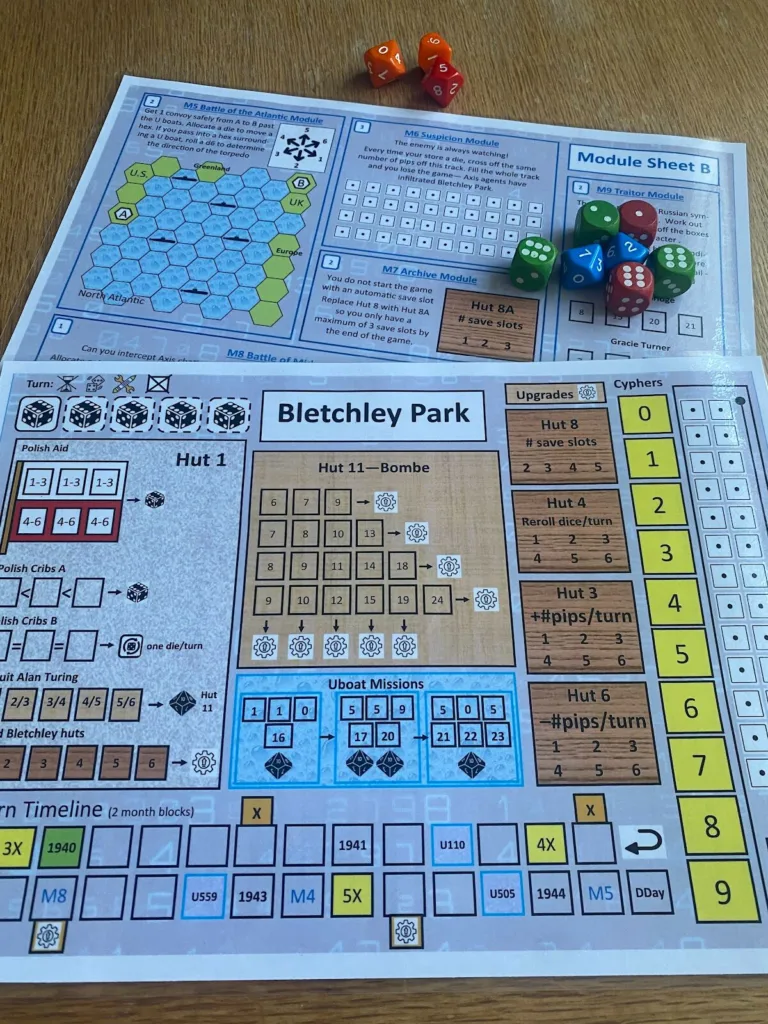
I realised that I was trying to perfect my game before I showed anyone and actually game design is a much more fluid process. It definitely gave me the confidence to share more of my ideas for discussion, rather than to feel I was being judged. Everyone just wanted to make the games in question better.
“Playtesting can feel as if you are offering up your heart and soul to be stomped on by others!”
It was great to be chatting about game mechanisms and balance with other like-minded people. As I said, I’m a little obsessed and love figuring out the puzzle of creating a game. How fantastic to meet other designers who also share this passion!
Joe: This is great Steve, it’s nice to see all this from a fresh perspective. Let’s round this out, what’s next then? Tell us a little about the game you shared in that playtest session?
Steve: It was a solo-only cyber hacker game called “Data Breach” where you play as 1 of 7 hackers up against one of 4 increasingly demonic conglomerates using cards to overcome their defences whilst defending against their traces. Multi-use cards, allies to recruit and careful resource management is a must if you are going to survive and each conglomerate has a different theme. One causes you physical damage whilst another bungs up your rig and stops you installing programmes.
It was my first game I’d seen through to a proper working prototype and then iterated upon so all your feedback was so helpful! So thanks so much for your time!
What I love about Steve’s story is how honest he is about the fear. That visible shaking, the interview-like anxiety, the vulnerability of putting something you’ve poured your heart into out into the world. Every designer has been there, but we don’t talk about it enough. His description of trying to read whether we were enjoying ourselves whilst simultaneously managing his own nerves is such a perfect capture of that first playtest experience.
The real turning point for Steve wasn’t just getting feedback on Data Breach, it was discovering that playtesting doesn’t have to be a judgement. Being on the other side of the table at Playtest UK showed him that the process is collaborative, that everyone’s there to make games better, not tear them down. If you’ve been perfecting your prototype in isolation, waiting for it to be “ready”, Steve’s journey is a good reminder that sometimes the best way to improve your game is to stop polishing and start sharing.


